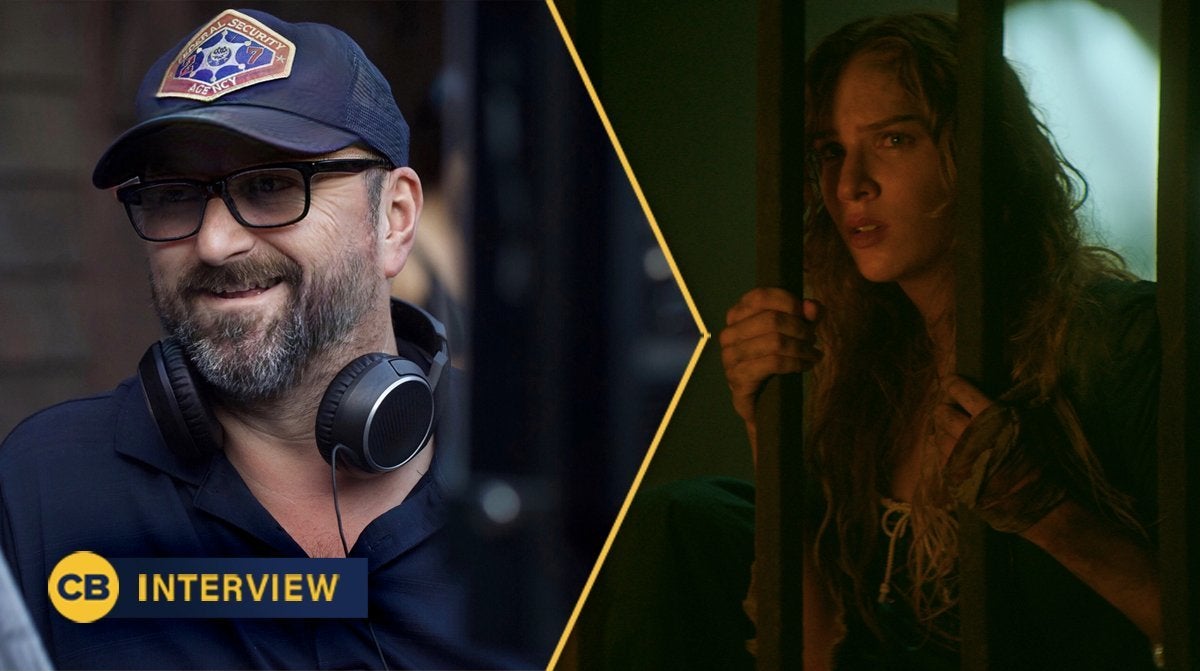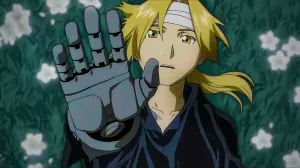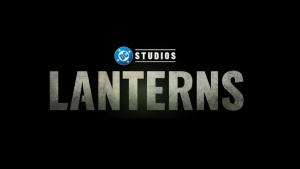Thanks to films like Dog Soldiers, The Descent, and Doomsday, filmmaker Neil Marshall quickly made a name for himself in the horror genre, building excitement among fans about what ambitious efforts could be over the horizon, with Marshall going on to invest more heavily in the world of episodic fantasy in the following years. Actress Charlotte Kirk, on the other hand, has dabbled in a number of genres over the years, yet has never fully invested herself in the darker side of cinema. The pair would go on to partner with one another to develop the new film The Reckoning, which is largely an unsettling historical drama, with plenty of disturbing elements in it, both rooted in the real world and the supernatural. The pair wrote the script together, along with Edward Evers-Swindell, while Marshall would also direct as Kirk also starred. The Reckoning premieres on Shudder May 13th.
Videos by ComicBook.com
In The Reckoning, after losing her husband during the Great Plague, Grace Haverstock (Charlotte Kirk) is unjustly accused of being a witch and placed in the custody of England’s most ruthless witch-hunter, Judge Moorcroft (Sean Pertwee). Forced to endure physical and emotional torture while steadfastly maintaining her innocence, Grace must face her own inner demons as the Devil himself starts to work his way into her mind.
ComicBook.com caught up with Marshall and Kirk to talk about developing the film, injecting horror into the drama, and its unexpected cultural relevance.

ComicBook.com: While this is mostly a period piece, there are some supernatural elements to it, so surely some audiences are lumping it in with the resurgence of folk horror, like The Witch and Midsommar, so why do you think there’s been a resurgence of this subgenre in recent years? What’s your reaction to being grouped together with those types of horror movies?
Neil Marshall: I mean, these things just come in waves, don’t they? The thing was, when we made it, and well, even now, I didn’t really think of it as folk horror. I was much more inspired by the likes of Witchfinder General than I was by The Wicker Man when it came to this movie, and that kind of thing, like Midsommar and The Witch, are way more in line with The Wicker Man than they are with what we’ve done. But I suppose any horror film set in England in the past has a similarity to it, so maybe it does all kind of fall into that category.
The other thing was, ours is more of a psychological horror than dealing with anything literally supernatural. So yeah, that was my take on it. I wasn’t consciously making a folk horror movie, but I guess I can see why it would be seen that way.
There isn’t a lot of supernatural horror in The Reckoning, but a demonic figure does appear at one point, and I can’t help but wonder if the staging and framing of that scene was a direct homage to fantasy artist Boris Vallejo or if that was just a coincidence?
Marshall: Yeah, absolutely. I think at some point when writing it, I remembered, because it’s one of my favorite paintings and I think it’s actually, in the painting, it’s a vampire of some sort embracing this woman.
Yeah, it’s called “Vampire’s Kiss.”
Marshall: Yeah, “Vampire’s Kiss.” So I just loved the image so much and thought it was perfect for the scene of the Devil in the cell, so I recreated the Boris Vallejo painting as accurately as I could.
Considering I recognized it immediately, I’d say you accomplished that.
Marshall: It’s funny, you’re like the first person to notice it, but yeah, I’m really proud that we pulled it off. And it is like a split-second kind of moment, but if you know it, you know it. And you obviously know it.
Charlotte, since your character goes through a lot of emotional and physical torment, what was the collaborative process of writing the film knowing that whatever torture you wrote, you’d be the one to actually have to endure and convey?
Charlotte Kirk: Well, I guess when writing it, I was just trying to be as selfless as possible, and I wasn’t thinking of playing this role. I was just thinking of writing the best script possible, and, in fact, I was writing it as a drama. It was really Neil that brought the horror stuff to it. And, of course, it’s the first script I’ve written. When we’re in pre-production, I was like, “Right, okay, I want to look at this now with a fresh pair of eyes and look at it like, I’m about to play this role.” Then I was like, “Oh, okay, this is what I’ve gotten myself into. I don’t know how to horse ride, I don’t know how to sword fight.” But, anyway, I learned it all and absolutely loved it.
It really was a great collaboration, because Neil was coming at it from as an experienced writer/director, and I’m coming at it as an actress who doesn’t come from the horror world. Before this, I wasn’t really into horror at all, I was too scared to watch any horror film. Now, of course, Neil has converted me. I do love horror films now.
Marshall: Now she’s gone over to the dark side.
Kirk: But yeah, it was a project, we absolutely loved it. Absolutely loved it, and I only have myself to blame.
So then, for you Neil, what was your perspective as you were writing the more horrifying stuff, knowing your collaborator would have to endure those components?
Marshall: Well, I suppose it’s the same with any film that I write. The actors are going to be put through hell, usually, so it wasn’t really that much different. With all these films, they’re pretty intense. The fact that it was Charlotte made no difference, because it’s like, she’s the actress. She’s the lead in the movie, so that’s that.
Since the film is rooted in history, at least as far as its premise, were there a lot of specific historical references you brought into the script or was the authenticity mostly in the premise?
Kirk: Oh, absolutely. For example, all the tortures are absolutely accurate. That is what happened. It was actually difficult trying to find one of those, the trials, that actually wasn’t lethal. But we wanted to be as accurate as possible, and what it was back then and what it is today, the message is, what’s changed? False rumors and so forth just spread quicker these days because of the internet, but what has changed? There’s still people taking advantage of their power and using that and spreading false narratives out there, and I think we got that message across in the film. I really do.
That’s another thing I was curious about, because as long as there have been men, there have been men being terrible to women. While you might see a surge of men being held accountable for abuse and harassment with the Me Too movement, things swing back the other way so that those who come forward more recently become persecuted. Was the development of this film inspired by that or is it merely a coincidence that its release lines up with what’s going on in our culture?
Kirk: When I was writing it, I guess I was thinking, what has changed? And yeah, the Me Too movement and what’s been going on in the media and all of that, that is very relevant.
Marshall: It’s a weird inevitability to it, of we set out to write a story that was authentic to the witch trials, the persecution of women in that time, and it’s like it inevitably became similar to what was going on now. And that’s because that sh-t is just history repeating itself. It was unavoidable that there’s a lot of stuff going on in the world right now that is relevant to this story, and it was, I don’t know, it’s kind of weirdly … we did not set out to take stuff from the headlines now. We were taking stuff from the headlines back then, because of the research that we did, and yet it just matches the headlines now. It’s alarming that it does, but it was just so closely parallel to the sh-t that’s going on now.
Kirk: But it was more obvious back then. I think today everyone has publicists and people to cover things up for them and so forth, right? So it’s exactly the same, what happened then and what’s going on now.
Marshall: Same sh-t, different era.
This is coming out in 2021, but whether it came out in 2016 or 2018 or 2022 or 2024, there will likely, depressingly, be real-world things like it going on in our culture.
Marshall: Yeah, because they’ve got the same awful stuff going on in one form or another. I mean, I like to think that maybe in 2024, 2028, or whatever, maybe things will improve. But will they? Who knows? They haven’t improved that much in the hundreds of years since this story took place, so I don’t expect any dramatic change overnight.
Kirk: Hopefully this movie will — not only is it a horror/drama, it’s a historic piece and it’s educational. I hope people can learn from this.
Marshall: Whilst also being scared sh-tless.
Since films like Dog Soldiers and The Descent earned you a big following in the horror community, then you went on to do these big fantastical projects like Game of Thrones, what was it like returning to direct a more straightforward horror film?
Marshall: Maybe at first I was feeling a little bit rusty, I suppose, because it has been a while. But it was a desire on my part to return to the horror fold, and for many reasons. Regardless of the fact it was horror, I just wanted to make something that I would have full creative control over. But the fact that it was horror, I wanted to engage with the fans of my earliest films again, I wanted to get back into the horror festival circuit, but getting into the horror circuit allowed me to, in the past, it was like, you get to meet the fans, you interact with the fans, you see movies you might never have normally seen, you get to meet other filmmakers.
All these things are really inspirational. That was maybe a slightly selfish part of it was I wanted to get back into that world again, and we didn’t get to do it because of COVID. But next time.
Speaking of creative control, we know there were behind-the-scenes issues with that on Hellboy and it might have turned you off from a big comic book productions, but is there a comic book series where, if you were given full creative control, you’d be willing to return to that world for?
Marshall: I always wanted to do a movie of Rogue Trooper. I always thought that would be pretty cool. Because 2000 AD was pretty much the only comic that I read as a kid, and obviously Judge Dredd came from that. But there was also a lot of other really cool characters and comic strips in that, and Rogue Trooper was my favorite, because the future warfare thing was just of interest to me, for sure.
*****
The Reckoning premieres on Shudder on May 13th.
This interview has been edited for length and clarity. You can contact Patrick Cavanaugh directly on Twitter.








